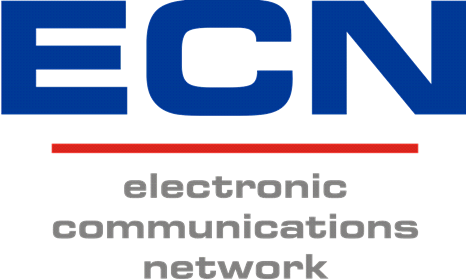There are currently 4 dominant types of private branch exchange (PBX) telephone systems used by modern businesses depending on the size and requirements. We’ll take a look at these systems and which will work best for you.
What is PBX?
This is a workplace telephone system that allows businesses to switch calls between users on local lines as well as offering access to external phone lines. Some of the benefits of PBX include:
- Reduced costs
- Flexibility in service plans
- Scalability
- Low upfront capital expenditure
- Professional image
- Reliable service
- No busy signals
- Good voice quality
- Low maintenance costs
- Multiple location platforms
What are the PBX types?
With so many benefits to business, it’s understandable that businesses want to implement PBX as the preferred telecommunications’ system. Once you’ve decided on PBX as the solution for you, it’s time to choose between the 4 PBX options. Here’s an overview of the systems.
1. Analogue (or traditional) PBX System
The traditional analogue system connects callers through multiple phone lines; however, it uses the traditional landlines – such as copper wire – for these connections. Analogue has all the basic features of PBX, such as:
- Extensions
- Transfers
- Mute
- Re-dial
- Speed dial
- Digital answering assistants
- Voicemail
- Call forwarding
The analogue system is best suited to businesses in remote areas where internet connections are not necessarily reliable. These are a standard PBX system which offers reliable, good voice quality, but are not the first choice for businesses looking to expand and grow.
2. On-site VoIP PBX System
The next step up in PBX system is the Voice IP (VoIP) which uses internet connections rather than traditional copper wire landlines. These on-site systems use your businesses’ internal network to deliver enhanced call stability, improved sound quality and many more applications than the older models. These features or applications include:
- Voicemail to email
- Mobility integration
- Video calling
- Caller ID and call waiting
- Call-back options
- Auto attendant
Although the initial installation costs may be more than an analogue PBX system, the cost savings more than make up for it in the long run. In fact, the business VoIP can save businesses up to 50 percent on the average phone bill. The VoIP is also much easier to maintain than traditional PBX and is only limited by the bandwidth space.
3. Cloud-based (or hosted) PBX System
This is a popular PBX system which is hosted off-site and maintained by a VoIP provider. The off-site location requires a lower monthly fee and maintenance costs. And, because there is no initial installation, the hosted PBX system is generally the first choice for smaller businesses. Even bigger businesses that can afford an on-site PBX system but are looking to save on costs and hassle should consider a hosted PBX system. The PBX hosts will provide you with ongoing software updates so you’re always benefitting from the latest features. This is an extremely scalable, flexible and cost-effective option for businesses.
What about a virtual PBX?
This is almost identical to a cloud-based PBX but tends to cost a bit less as it has fewer features. A virtual PBX only runs internal calls over the internet, which makes it suited to businesses that don’t make a lot of external calls. Features include voicemail and hold, although other features are available depending on the provider.
4. Hybrid PBX System
This combines existing PBX equipment with the VoIP, offering many IP extensions that connect the phones to the office. Some of the features of this PBX system include:
- Virtual conference rooms
- Fax over IP
- Video conferences
- SIP trunking
- Auto-attendant
- Hold queues
With the hybrid PBX system, if the legacy PBX or VoIP server is not functional, the system switches over to another network, making it great for remote offices and secondary locations. These are also a great option for temporary locations such as a construction site, with cordless phones connecting to the hybrid PBX system rather than using the building’s telephone lines. The hybrid PBX is ideal for businesses that would prefer to have the telephone systems on site, particularly where secure phone lines are required. This can eventually be upgraded to cloud-based PBX if required.
When it comes to choosing the right PBX solution for your business, it’s best to work with industry professionals who can outline the relevant features, cost and requirements. ECN is a market leader in voice solutions, offering a wide range of cost-effective voice, data and hosted services. They’re the first stop in South African business communications’ services!


1 Comment
ECN: How many types of PBX are there?
[…] Sourced from: ECN. View the original article here. […]